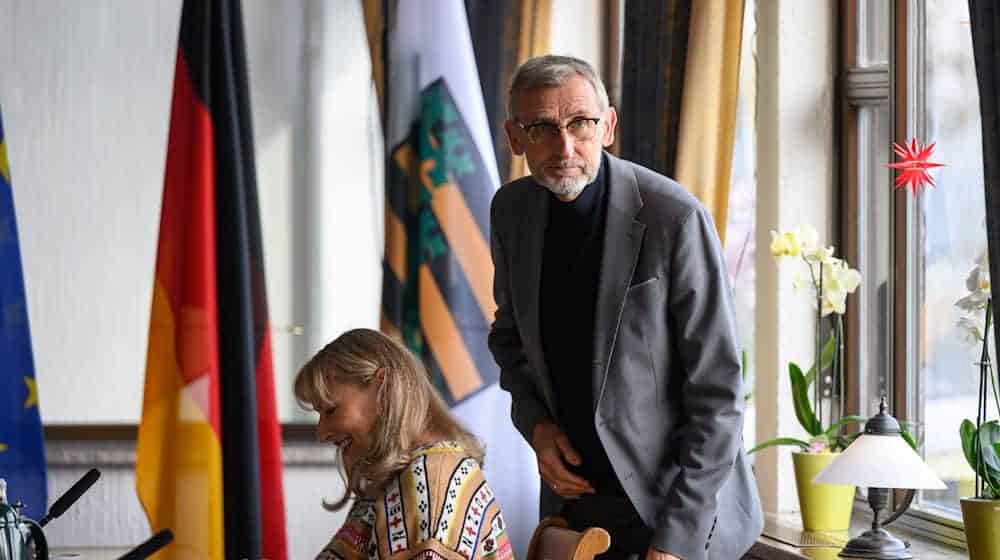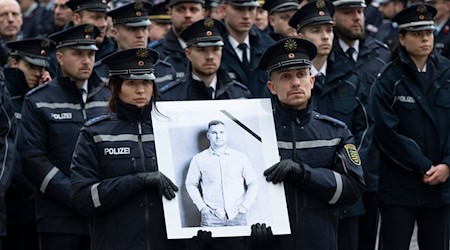Saxony wants to prepare comprehensively for periods of heat and drought. The Free State will be severely affected by heat in the future, said Interior Minister Armin Schuster (CDU) after a meeting of the security cabinet in Dresden. However, the alarm is not yet sounded. We are still a long way from the situation in southern Europe. A crucial issue is the water supply. With the work already carried out in the Ministry of the Environment, the government has an "ace up its sleeve".
Schuster: The issue of heat and drought is still underestimated
The government also meets with external experts at a security cabinet meeting to discuss security-related issues. On Tuesday, the topic of heat and drought was on the agenda. According to Schuster, the individual government departments provided information on "who is prepared and how". "The topic of heat and drought is still underestimated", said Schuster. Security is more than just police and civil protection. Last week, the topic was run through during a state disaster control exercise.
"We have long been aware of the issue," emphasized Schuster. However, practising such a crisis scenario "in the engine room" and then evaluating it in the cabinet is important to the government. The Minister of the Interior believes that Saxony is particularly affected by forest fires, for example, due to the high level of ammunition contamination in the soil. "We will not be able to completely remove these munitions residues." In hot weather, you always have to expect that the ignition of ammunition will cause fires.
Minister sees Saxony as being "on the road"
In principle, Saxony is "on the road" when it comes to heat protection, said the minister. "We are thinking everything through." He cited areas such as energy supply, the reliability of IT systems and traffic as evidence of this. For example, heat could lead to roads being torn up, deform railroad tracks and affect airport runways. "All transportation routes are affected." This also raises questions about the food security of the population and supply chains.
Health Minister Petra Köpping (SPD) commented on the topic of health and care. She said that problems such as patient safety, staff's ability to work and technical operations were at stake in the heat. "Heat puts a strain on health and increases susceptibility to illness." This leads to higher costs in the healthcare system. The chronically ill, children, elderly people, pregnant women and the homeless are particularly affected.
Municipalities should draw up their own heat protection plans
Köpping called on municipalities to draw up heat protection plans. Currently, less than one percent of Saxony's municipalities have such a plan - of the major cities, only Dresden has one. However, Chemnitz and Leipzig are working on the issue. Hospitals and care facilities should also have emergency plans in place to protect their patients and residents from the heat. According to Köpping, heat protection should also play a role in the state development plan.
According to Köpping, the aim is to sensitize all those responsible to this problem. This does not always have to do with money; it is often simply about knowledge. "Raise awareness, but don't panic," was the minister's message.
After the cabinet meeting on the grounds of the riot police, Schuster handed over five command vehicles to representatives of the districts of Saxon Switzerland-Eastern Ore Mountains, Meissen, North Saxony and the Vogtland district. On Monday, the Ministry of the Interior awarded a contract for the delivery of 46 new fire engines. Six vehicles are planned for the state's own emergency services and 40 vehicles for the municipalities with a total value of around 22 million euros.
Copyright 2025, dpa (www.dpa.de). All rights reserved










